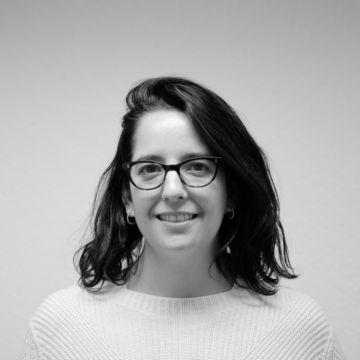Mr. Dante gradually comes out of the coma and complains of intense thirst and noise.
Mr. Dante gradually comes out of the coma and complains of intense thirst and noise.

Tania Manríquez is a PhD student in Bioethics at the University of Zurich. Her research focuses on the ethics of patient empowerment in mental health apps, the threats that theses apps pose to patient autonomy and their impact on our understanding of health.
As an anthropologist and ethicist, she has developed qualitative methodologies and conducted in-depth interviews on development, human rights and global health topics in Africa, Europe and Latin America. She has experience as a consultant and researcher in projects for the World Health Organization, UNICEF, the European Commission, the Center for Development and Cooperation (NADEL, ETH Zurich), the Center for Child Well-Being and Development (University of Zurich) and the Human Rights Centre (University of Chile).
Tania joined DIPEx in 2019 and works as a researcher in the module “Experiences on Intensive Care Unit”.
With the technical and medical possibilities on intensive care a patient can be able to survive life-threatening illnesses. These experiences of critical illness and intensive care medicine are challenging for patients and families. Often experiences made on intensive care unit (ICU) can be life changing.
In small video- or audio-sequences we would like to illustrate the experiences made by patients on ICU and how they handled their stay in this critical situation.
Many patients share their experiences on intensive care unit and show how these experiences influenced their life.
We are curious about your story!

Tania Manríquez is a PhD student in Bioethics at the University of Zurich. Her research focuses on the ethics of patient empowerment in mental health apps, the threats that theses apps pose to patient autonomy and their impact on our understanding of health.
As an anthropologist and ethicist, she has developed qualitative methodologies and conducted in-depth interviews on development, human rights and global health topics in Africa, Europe and Latin America. She has experience as a consultant and researcher in projects for the World Health Organization, UNICEF, the European Commission, the Center for Development and Cooperation (NADEL, ETH Zurich), the Center for Child Well-Being and Development (University of Zurich) and the Human Rights Centre (University of Chile).
Tania joined DIPEx in 2019 and works as a researcher in the module “Experiences on Intensive Care Unit”.
We use cookies to improve our site and your browsing experience. By continuing to browse the site you are agreeing to the use of cookies. More information about privacy can be found here.
Accept